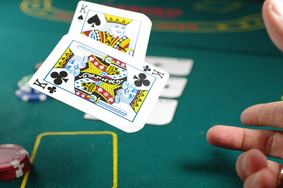Poker: What is Pot Equity?
 Whether you have just started playing poker or you are just reading up on it in order to prepare yourself, you may have heard the term 'pot equity'. This is something many players talk about because pot equity can affect many aspects of a game. By understanding it, you can use it to your benefit here in jouerpokerligne.org.
Whether you have just started playing poker or you are just reading up on it in order to prepare yourself, you may have heard the term 'pot equity'. This is something many players talk about because pot equity can affect many aspects of a game. By understanding it, you can use it to your benefit here in jouerpokerligne.org.
Pot Equity
Pot equity is the amount of money in the pot that belongs to you based on the hand you have and your odds of winning. For instance, if you have two Aces in your hand and your opponent has a pair of twos, you have about an 80% chance of winning. Now, if there was $100 in that pot, your specific pot equity would be $80. This is an easy calculation and should be performed almost immediately each time money is added to the pot.
Changing Pot Equity
With just one card, your pot equity can change dramatically. If your opponent gets an additional two after the flop and you get nothing, your equity will go way down while his rises dramatically. For this reason, it is often difficult to calculate the pot equality with any level of exactness; you cannot see what your opponents are holding in their hands.
Calling Based on Equity
When you know your pot equity, you can use it to make judgment calls on whether to raise, call or fold. In addition to that, you will understand that the more money you get your opponents to put into the pot when you have great equity and you will be better off.
While pot equity does not always determine whether you are going to win or not, you can utilize this information of Mini Guide to help you determine what moves to make and what moves you want your opponent to make. With that information, you can take steps to manipulate the other players, and if you have read them correctly, you could win big.



